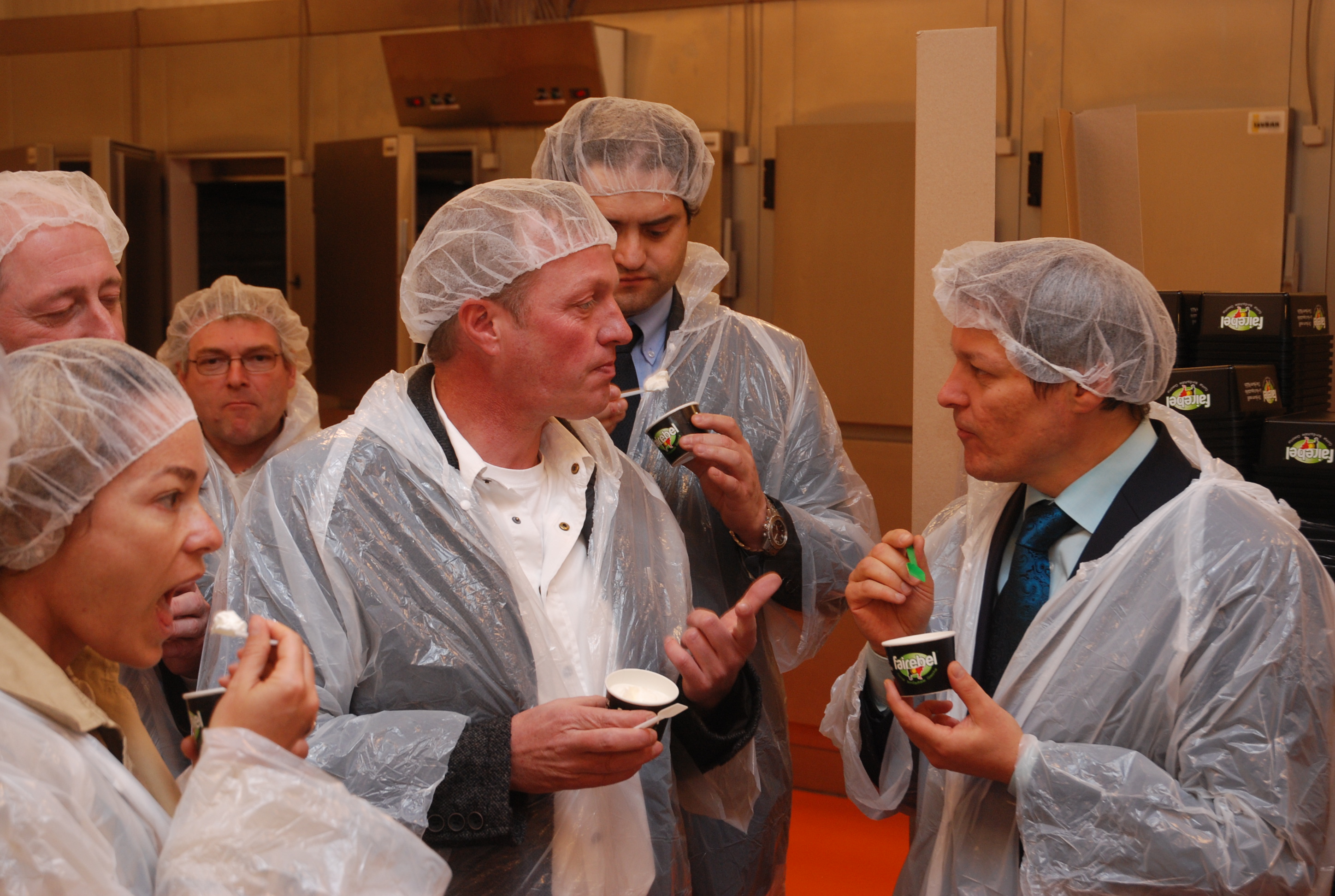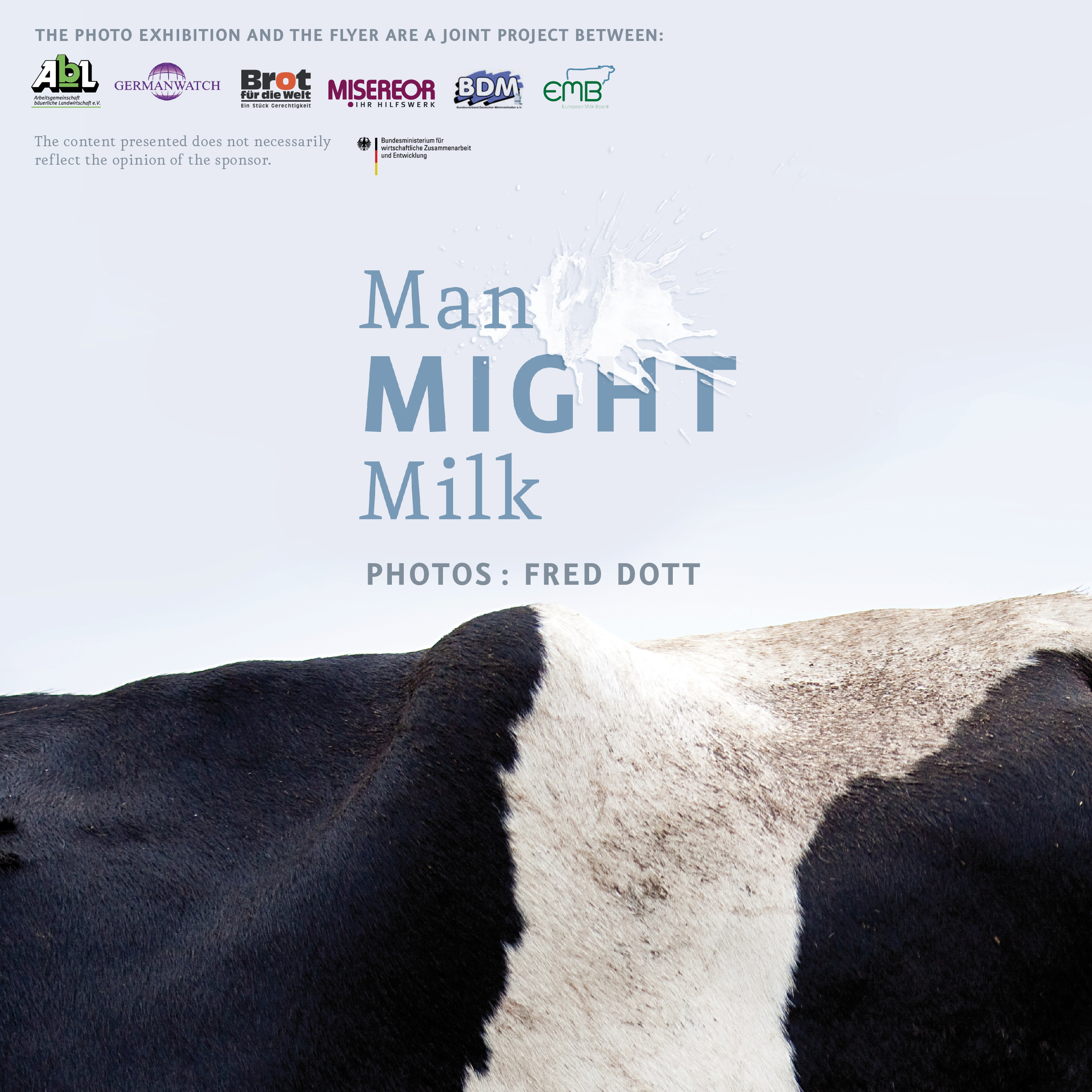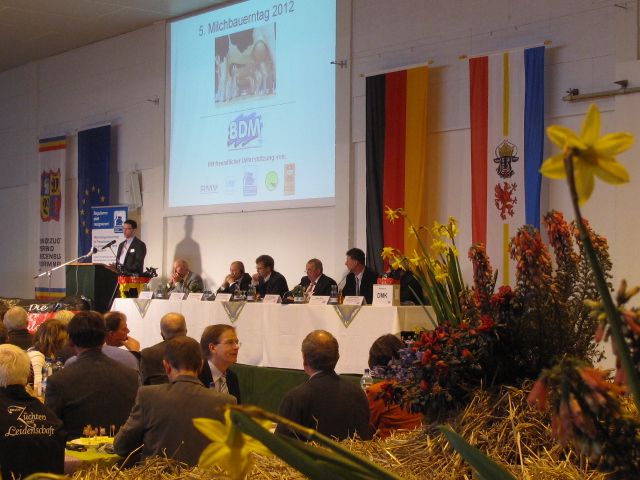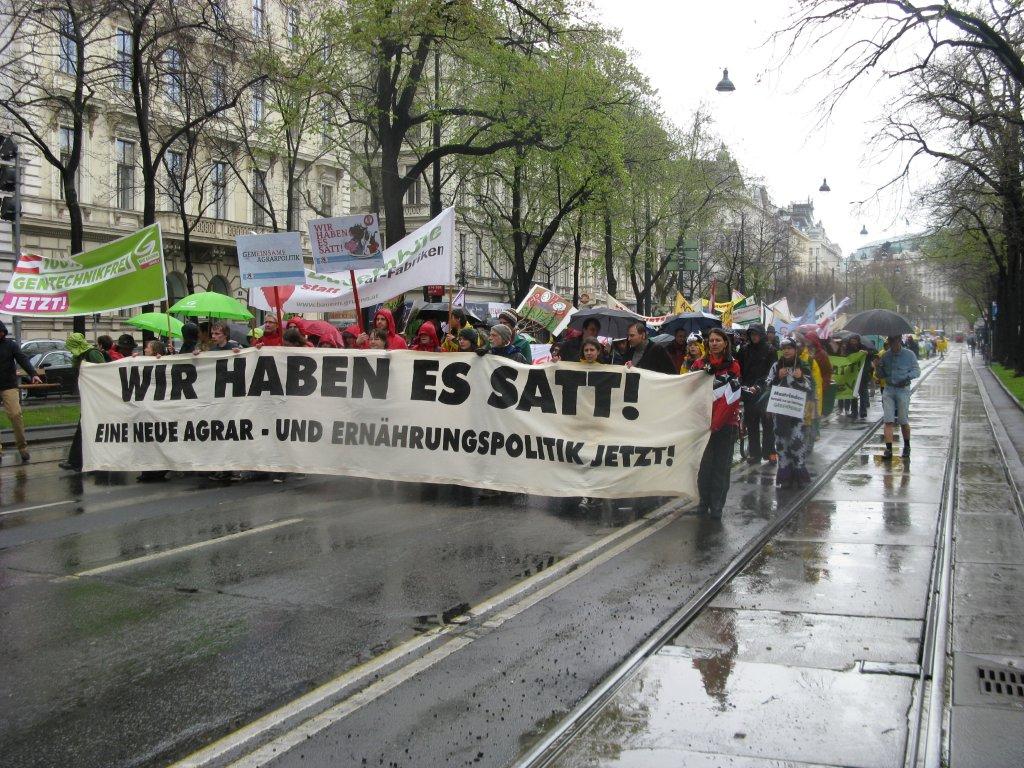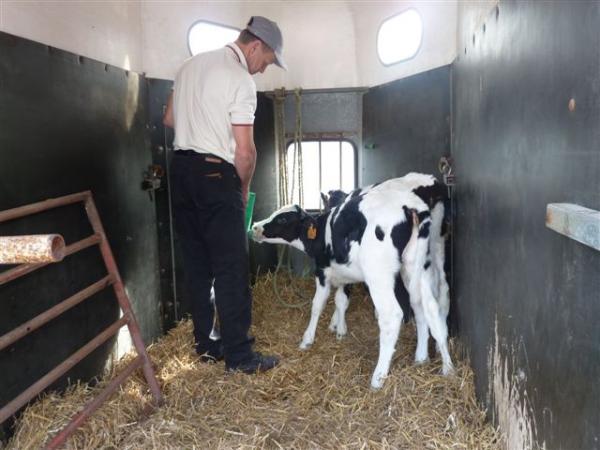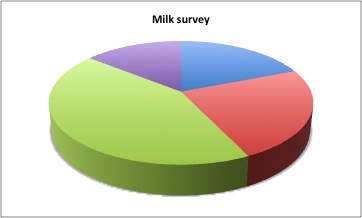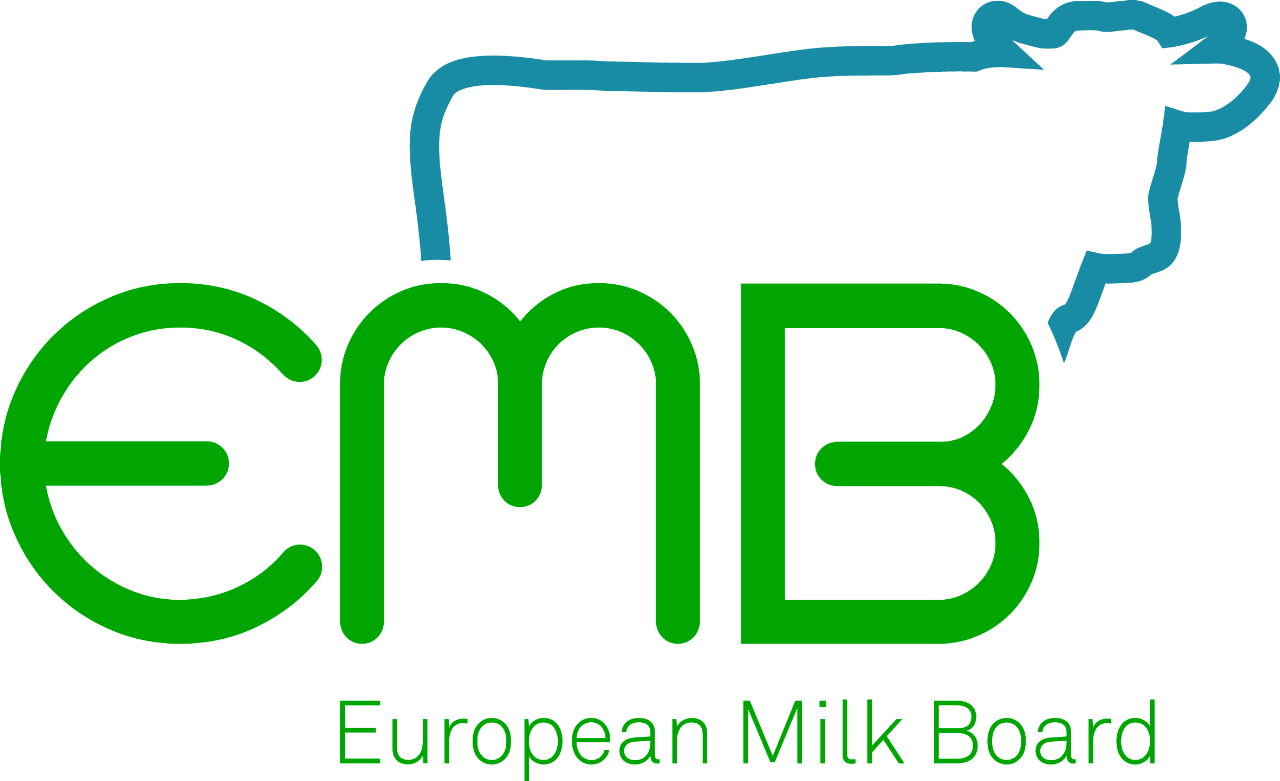EMB Newsletter May 2012
Newsletter as PDF
Contact
European Milk Board
Bahnhofstr. 31
D-59065 Hamm
Phone: 0049/2381/4360495
Fax: 0049/2381/4361153
E-Mail: office@europeanmilkboard.org
Website: http://www.europeanmilkboard.org
Newsletter as PDF
Contact
EMB - European Milk Board asbl
Rue de la Loi 155
B-1040 Bruxelles
Phone: +32 - 2808 - 1935
Fax: +32 - 2808 - 8265
Dear Dairy Farmers and Interested Parties,
As a new Member of the Board of the European Milk Board (EMB) I would like to take this opportunity to present a few thoughts on a new project that means a great deal to me: FaireFrance - Fair Milk.
Following the lead of Austria, Belgium, Luxembourg and the Netherlands, it is now France that is taking the bold step towards Fair Milk. The project was initiated by the APLI (Association des Producteurs de Lait Indépendants), a French member organisation of the EMB.
The European dimension of our project is of great importance to us, as through it our aim is to convey a specific conception of Europe: the idea of a united Europe, where intelligent and realistic regulation of the market creates fair conditions for everyone. We firmly believe in this aim, one we now approach with total conviction.
We wish to benefit from the valuable experience and knowledge of our EMB colleagues in other European countries, but at the same time will try to develop the project in our own way, by setting up a new kind of sales co-operative. A new kind, because it places fairness at the forefront, the basis on which to pursue the following goals: a fair farm-gate price that covers production costs and promises the producers a decent income; a fair return on the capital invested; a fair distribution of the value added in the food chain; and finally an honest price for the consumer, who we guarantee a high-quality product.
But our faultless products also have a strong symbolic value, because the feature of our commercial chain from the producer to the consumer is fair business relations. This leads us directly to the principle on which our entire project is built, which gives it meaning and from which we draw our energy: reclaiming control of our common destiny, i.e. our destiny as milk producers or fundamentally as normal citizens.
The Fair Milk project will help us achieve this objective. It is making visible progress throughout Europe, as shown by the launch of the new dairy ice-cream range by the Belgian Fair Milk "Fairebel" in April this year (see also the article in this issue of the Newsletter). I promise you that in France we will equal our neighbouring countries, because we have a few tricks up our sleeve to make this project a success: our courage, our intelligence and our membership of the EMB. But more than anything, what we have is our milk!
Yours,
Richard Blanc
(Member of the Board of the EMB and Vice-President of APLI)
Dairy market news – The crisis is here
In spring 2012 the dairy market situation of many countries in Europe is the same, vividly recalling the events of 2008 and 2009: milk prices tumbling to worrying levels – with the difference being that this time costs are even rising. Unfortunately the European Milk Board’s predictions have proven correct.
In Italy, for instance, when milk contracts expired at the end of March 2012 the market collapsed and the milk price plummeted to below the 30-cent mark. Farmers are now having to face significant price reductions of around 15 per cent for contracts with the Italian dairy industry for 2012. In 2011 the average farm-gate price was still 40 to 41 cents for drinking milk and milk for the production of cream cheese. The price for traditional and quality products like Grana and Gorgonzola was 42 to 43 cents. Milk for the production of Parmigiano Reggiano cheese even fetched short-term peak prices of up to 70 cents.
Launch of “Fair Milk” ice-cream
The new “Fairebel” brand ice-cream range was presented to the public in Francorchamps, Belgium, on 19 April in the presence of EU Agriculture Commissioner Dacian CioIos and the Walloon Minister of Agriculture Carlo di Antonio.
Besides Dacian Ciolos and Carlo di Antonio there were many other interested people who could not help themselves tasting the new ice-cream brand that Thursday evening. They included many members of the Faircoop co-operative, regional representatives of Belgian politics such as the Chairman of the Agriculture Committee of the Walloon Parliament, and several mayors and local authority representatives. In future the “Fair Milk” ice-cream will be produced in three flavours: “Pure Dairy Ice-Cream”, “Dame Blanche” and “Vanille Bourbon” at the factory of the Gilfin ice-cream manufacturer contracted by Faircoop.
Latvia: a long way off fair milk prices
At a meeting between the EMB and a milk producer from Latvia it became obvious that the downward pressure on prices is also exerting a strong influence on the Latvian market.
Dace Pastare is a determined woman who does not mince her words when getting to the heart of the matter. “When the quotas are abolished in 2015, the dairy market will collapse with a big bang.” The milk producer and Chair of the Board of the M?RŠAVA co-operative drove a good 1,000 kilometres from the Latvian town of Valmiera today to meet the EMB in Gdansk for two hours. She wants to find out more about the European milk producer association and to report on the situation in Latvia.
Man MIGHT Milk photo exhibition still doing the rounds
How do farmers work in Germany, France or in Burkina Faso, Africa? What impact does EU agricultural policy have on them? These questions are answered by the photo exhibition “Man MIGHT Milk – the European agricultural policy and family farming in the North and South. Effects and perspectives.” The exhibition has been on the road in Europe since early 2011. Ask us and we will gladly let you use the exhibition free of charge.
For “Man MIGHT Milk”, Hamburg photographer Fred Dott recorded the faces and stories behind milk with his camera and took a portrait of seven farms in three European countries and the West African country of Burkina Faso. The aim of the visual presentation is to make the general public and political decision-makers more aware of the challenges and the importance of a sustainable European agricultural and dairy policy.
5th Dairy Farmers’ Conference in Karow – Dairy farmers demand stronger market position for producers from the politicians
“Strength in the market – How we can achieve it together” was the agenda for the 5th Dairy Farmers’ Conference on 11 April 2012. The German Dairy Farmers’ Association (BDM), one of the German member organisations of the European Milk Board (EMB), had issued an invitation to discuss a better market position for the milk producers. At the conference the Polish Minister of Agriculture Marek Sawicki advocated keeping the milk quotas until 2020.
The Karow marketing centre auction room was full. Over 250 dairy farmers, political representatives and experts from agricultural organisations gathered in Karow in the federal state of Mecklenburg-Vorpommern. The media were particularly interested in the current slump in milk prices, and the local press and the major national TV broadcasters reported extensively on the event.
Demonstration in Vienna: We’ve had enough
“The agricultural policy affects us all – it must never be decided on behind closed doors again”, that was the demand of the platform “We’ve had enough – we want a new agricultural and food policy now”. The alliance of rural associations, environmental and development aid organisations and social movements in which the EMB member organisation IG-Milch is represented, opened the agricultural policy spring season on 30 March with a demonstration in Vienna.
Dairy farmer: one of the worst jobs in the world, a survey says
According to a US American survey, the occupation of dairy farmer was voted one of the worst in 2012. It is ranked 199 out of 200, only “beaten” by the occupation of tree feller. Top of the table, on the other hand, is the job of software engineer.
Survey: How much milk will Flanders produce in 2018?
This April the Flemish Ministry of Agriculture conducted a survey among dairy farmers and milk processors with the aim of developing strategies for the future configuration of the dairy market based on the results. More than 70 per cent of the Flemish dairy farmers were sent the survey.
The independent study was drawn up in collaboration with agricultural associations and milk processing organisations. To gain a realistic picture of the situation of dairy farmers in Flanders, farmers no longer expanding their farm or who had even given up farming were also asked to take part in the study. The survey results are to be published after the summer.
EMB Calendar
Please find here some of the most important meetings of the EMB executive board in May/June:
- 08.05.: Meeting with Prof. Hanisch of the Humboldt University in Berlin
- 22.05.: Meeting of the working group on milk pooling in Brussels
- 01.06.: Demonstration of Swedish dairy farmers in Stockholm
Full Texts
Dairy market news – The crisis is here

In spring 2012 the dairy market situation of many countries in Europe is the same, vividly recalling the events of 2008 and 2009: milk prices tumbling to worrying levels – with the difference being that this time costs are even rising. Unfortunately the European Milk Board’s predictions have proven correct.
In Italy, for instance, when milk contracts expired at the end of March 2012 the market collapsed and the milk price plummeted to below the 30-cent mark. Farmers are now having to face significant price reductions of around 15 per cent for contracts with the Italian dairy industry for 2012. In 2011 the average farm-gate price was still 40 to 41 cents for drinking milk and milk for the production of cream cheese. The price for traditional and quality products like Grana and Gorgonzola was 42 to 43 cents. Milk for the production of Parmigiano Reggiano cheese even fetched short-term peak prices of up to 70 cents.
In the Netherlands the situation on the open market is the most critical, owing to massive overproduction. Here it is currently very hard – if not impossible – for farmers to sell their milk. Spot-market prices of milk have fallen to between 21 and 24 cents. That is ten to twelve cents less than dairy farmers are still being paid by their co-operatives. However, the downward trend is more than clear for everyone.
The situation is similar in other European countries with prices crashing to below 30 cents as a result of huge production volumes. Average basic farm-gate prices for milk in France for instance dropped from 31-32 cents in March to 28 cents in April; in Belgium, to 28-29 cents in March and to 25 cents in April. In Germany the average farm-gate price was marginally above that at 31-32 cents.
And the main feature of the current situation in the Swiss dairy market is an unprecedented record production, expected to be reflected by 3.5% reductions in farm-gate prices in May. The only way to shift the increased volume of milk is to dispose of it on the world market in the form of butter and milk powder. At present every producer must pay a contribution of some 0.8 cents a kilo for these dumping exports.
In addition to the downward trend in farm-gate prices there is an extremely difficult situation with operating costs on the farms in many countries. In Italy, for instance, the prices of fuel and electrical energy have risen by 20 per cent. Soya has gone up by 22 per cent. As a result, the costs of producing one litre of milk in Italy are a whopping 45 cents. According to a recent study, in Ireland production costs rose by six cents a litre of milk between 2006 and 2011. In Germany, too, milk production costs have increased by about five cents since 2009.
Christian Schnier (EMB)

